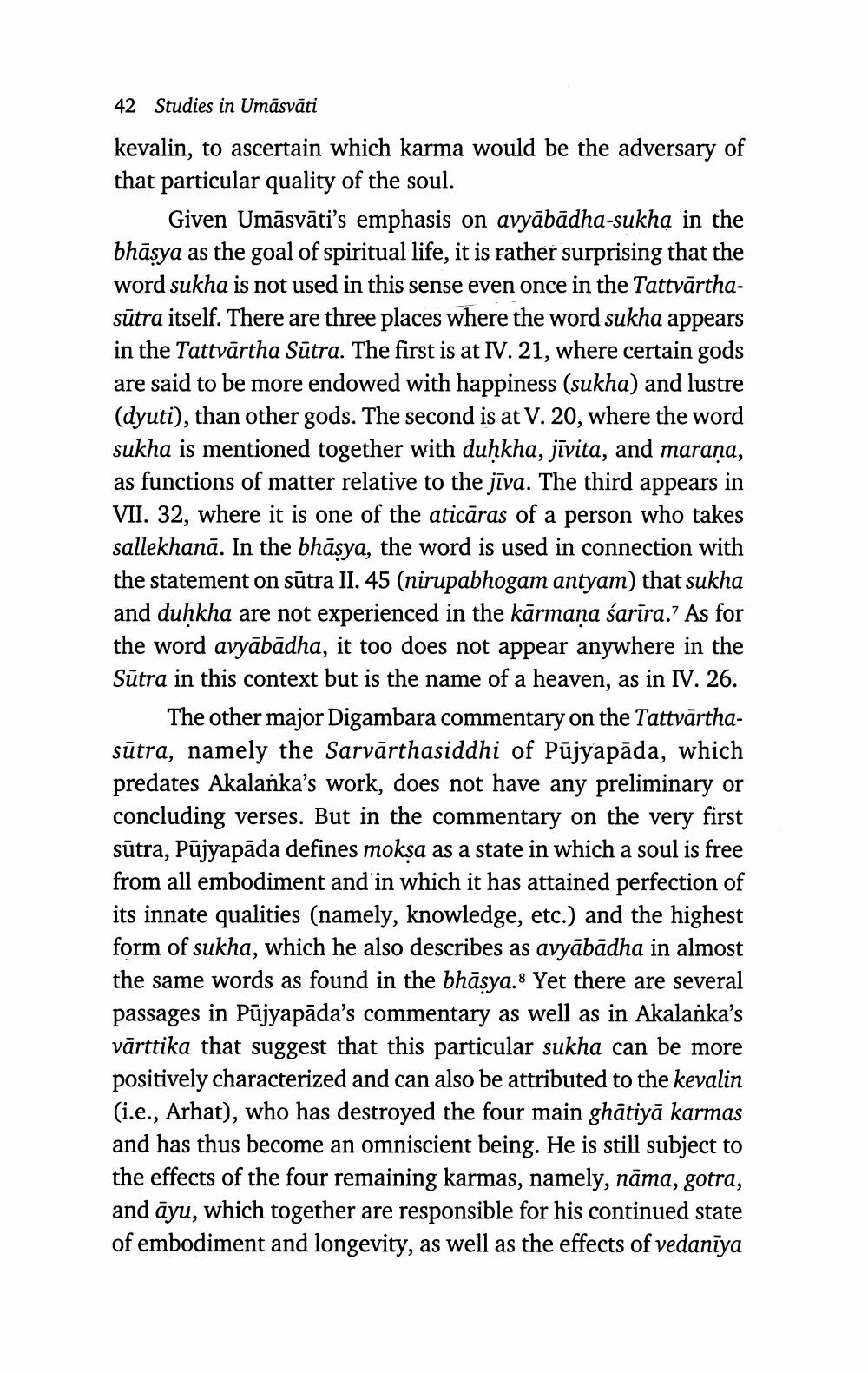________________
42
Studies in Umāsvāti
kevalin, to ascertain which karma would be the adversary of that particular quality of the soul.
Given Umāsvāti's emphasis on avyābādha-sukha in the bhāsya as the goal of spiritual life, it is rather surprising that the word sukha is not used in this sense even once in the Tattvārthasūtra itself. There are three places where the word sukha appears in the Tattvārtha Sūtra. The first is at IV. 21, where certain gods are said to be more endowed with happiness (sukha) and lustre (dyuti), than other gods. The second is at V. 20, where the word sukha is mentioned together with duḥkha, jīvita, and marana, as functions of matter relative to the jīva. The third appears in VII. 32, where it is one of the aticāras of a person who takes sallekhanā. In the bhāsya, the word is used in connection with the statement on sūtra II. 45 (nirupabhogam antyam) that sukha and duḥkha are not experienced in the kārmaņa śarīra. As for the word avyābādha, it too does not appear anywhere in the Sūtra in this context but is the name of a heaven, as in IV. 26.
The other major Digambara commentary on the Tattvārthasūtra, namely the Sarvārthasiddhi of Pūjyapāda, which predates Akalanka's work, does not have any preliminary or concluding verses. But in the commentary on the very first sūtra, Pūjyapāda defines mokṣa as a state in which a soul is free from all embodiment and in which it has attained perfection of its innate qualities (namely, knowledge, etc.) and the highest form of sukha, which he also describes as avyābādha in almost the same words as found in the bhāsya.8 Yet there are several passages in Pūjyapāda's commentary as well as in Akalanka's vārttika that suggest that this particular sukha can be more positively characterized and can also be attributed to the kevalin (i.e., Arhat), who has destroyed the four main ghātiyā karmas and has thus become an omniscient being. He is still subject to the effects of the four remaining karmas, namely, nāma, gotra, and āyu, which together are responsible for his continued state of embodiment and longevity, as well as the effects of vedanīya




